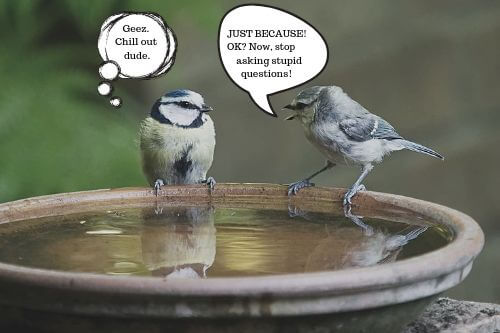
YouTube / iTunes / Spotify / Radio Public / Pocket Casts / Google Podcasts / Breaker / Overcast
Listen to ArtisanEnglish.jp posts & lesson intros here.
Phrase: Just because
You’ll often hear this little phrase when someone wants to make a point, such as, “Just because your friend does something stupid doesn’t mean you have to do it too.”
It’s often used to say that even though one thing is true, that doesn’t mean another thing is also true.
I covered the phrase tarred with the same brush about a month ago.
The point I was making in that post is just because some people who have tattoos are criminals, that doesn’t mean all people with tattoos are criminals.
This is an excellent example of how the phrase just because is used daily.
I would think that moms, dads, teachers and anyone else who is around kids and caring for them use just because multiple times a day.
Kids tend to do things which get them into trouble due to peer pressure.
Young people are often encouraged to engage in underage drinking or smoking by their friends.
Suppose an authority figure discovers that a young person they are responsible for has been participating in these activities.
In that case, they may say something along the lines of, ‘I don’t care what Jhonny Smith said. Just because every idiot in school is smoking doesn’t mean you have to try it too.’
Today’s phrase is also an excellent excuse for doing something wrong.
When we do stupid things, there is often no apparent reason other than that we weren’t thinking clearly and did it just because.
Finally, older kids love to use this logic when bossing around their younger siblings.
A big brother may order his little sister to sneak into the kitchen and steal him a cookie before supper.
If she protests and asks why she has to do his dirty work, the answer is, of course, just because.
Flesch-Kincaid Readability Test
This post is understandable by someone with at least a 7th-grade education (age 12).
On the Flesch-Kincaid reading-ease test, this post scores 73.
The easier a passage is to read, the higher the score on a scale of 0 – 100.

